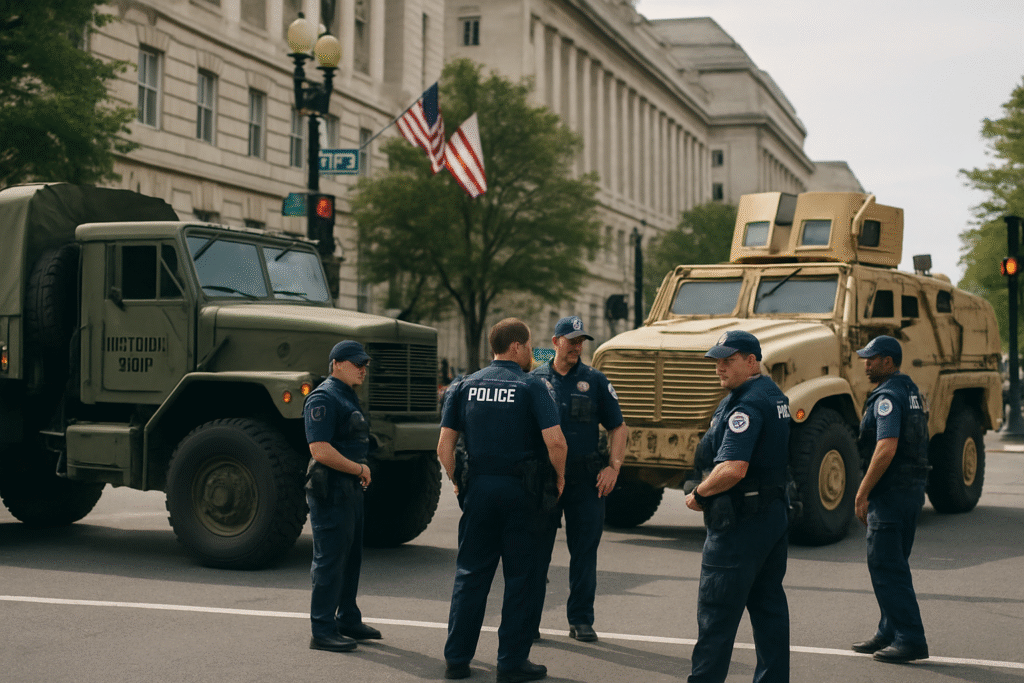National Guard Takes Control of Washington DC: In an unprecedented move, US President Donald Trump declared a “criminal emergency” in Washington, DC and deployed 800 National Guard troops to assert federal authority over the nation’s capital. This directive placed the city’s police department under temporary federal control for up to 30 days, a historic invocation of Section 740. Any extension beyond this period will require Congressional approval, a prospect met with resistance in the Democratic-led House.
Federal Control of DC Police: Immediate Actions
On Tuesday, National Guard personnel began arriving in the capital, joining city police in sweeping law enforcement operations following the White House order. Over 850 officers and agents coordinated extensive arrests overnight, resulting in 23 individuals taken into custody for offenses ranging from homicide, drunk driving, gun and drug crimes to subway fare evasion. The US Park Police have also dismantled 70 homeless encampments over the last five months, offering shelter options or addiction treatment to displaced individuals, though those refusing assistance may face fines or jail time.

Bowser, Trump, and the Battle for DC’s Streets
The relationship between DC Mayor Muriel Bowser and President Trump has long been complex. Bowser, a Democrat, previously clashed with the Trump administration, notably pushing back against military involvement in local affairs and confronting federal law enforcement presence during protests in 2020. In Trump’s second term, Bowser has attempted to strike a balance, finding common ground on select issues but remaining publicly wary of federal overreach—especially as Trump finally brought his long-touted military parade to fruition and oversaw the removal of the symbolic Black Lives Matter Plaza.
Crime Statistics and Public Sentiment
Despite the federal crackdown, Washington DC has actually seen a marked decrease in violent crime, hitting a 30-year low after a surge in 2023. Carjackings have plummeted nearly 50% in 2024 and continue to drop, though debates persist over juvenile involvement and punishment severity. Local residents offer mixed reactions: some, like longtime Washingtonian Jeraod Tyre, acknowledge feeling safer and commend the police’s efforts, but express concern about National Guard troops’ unfamiliarity with the city’s neighborhoods.
Political Implications and Future Outlook
Any extension of federal control over DC policing will require Congressional consent—a process likely to stir political tension, especially amid a divided Congress. Critics, including DC Justice Lab CEO Clinique Chapman, view Trump’s move as a display of power rather than a solution to the city’s deeper challenges. While Trump frames his actions as a necessary step to “take our capital back,” his aggressive law enforcement strategy has yet to address core issues like homelessness and systemic crime.
President Trump’s decision to deploy National Guard troops and seize control of Washington DC’s law enforcement marks a significant escalation in federal intervention and raises questions about the balance between security and local autonomy. As the city adjusts to these sweeping changes, all eyes remain on Congress and the White House for the next chapter in this high-profile standoff. (With inputs from AP)
